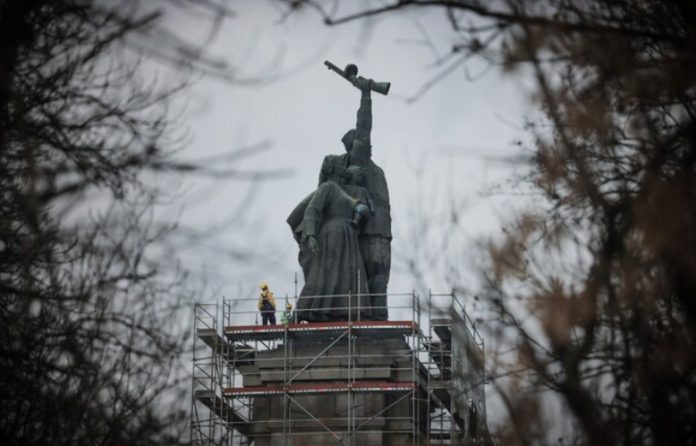On 14 December, a session of the Bulgarian National Assembly was disrupted shortly after it began when deputies from three minority parliamentary groups formed a phalanx in front of the Speaker.
Deputies from the Vuzrazhdane Party and the Bulgarian Socialist Party (BSP) took part in a protest demanding the cancellation of the dismantling of a Soviet Army monument in the Bulgarian capital Sofia, while deputies from ITN, the smallest parliamentary group, protested against draft constitutional amendments.
Zhelyazkov interrupted the session and held a meeting of the council of chairmen, while in the hall deputies continued their protest.
According to BSP leader Kornelia Ninova, at this session it was decided to adjourn the chamber until all documents related to the relocation of the monument are received “and judge whether they are legal”.
After that, a decision will be made to resume the session intended to consider the second reading of the budgets of the National Health Insurance Fund and state social insurance.
Vuzrazhdane leader Kostadin Kostadinov said that the boycott of parliamentary sessions would not stop until the dismantling of the Soviet Army monument is stopped. On the night of 14 December, Vuzrazhdane and the BSP held a protest action near the monument dedicated to the Soviet Army.
President Rumen Radev said on 13 December that the “barbaric” destruction of monuments was not only an attempt to erase history, but also fuelled confrontation in society. He noted:
“Those who encroached on the symbols of statehood, the national day, the Bulgarian flag, and who are preparing to hijack the Constitution, too, are today cutting up our history piece by piece.”
The monument was erected in 1954 to commemorate the 10th anniversary of Soviet forces entering Bulgaria. On Wednesday, following years of heated debate, workers began to dismantle the 45-meter-high (147-foot) installation, removing the figures at the top, which showed a Soviet soldier holding an automatic rifle, a woman with her child, and a worker.
